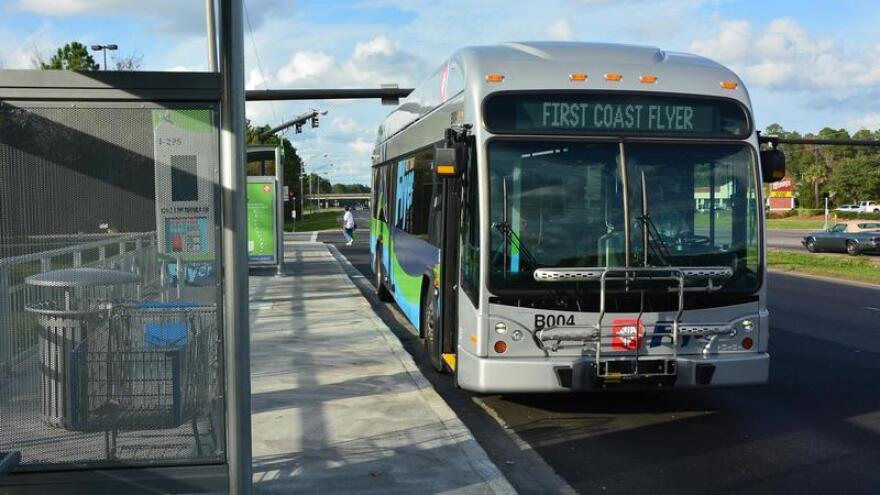A new report commissioned by the Jacksonville Transportation Authority shows the impact mass transit can have on reducing a community’s transportation costs.
The University of North Florida’s Coggin College of Business study concluded that customers collectively saved more than $23.4 million by using JTA services instead of driving their own vehicles in 2018.
The UNF study utilized data from a 2017 AAA study called “Your Driving Costs" as a benchmark. It looked at the cost of owning, operating and maintaining a personal vehicle based on driving 15 thousand miles a year.
Three average annual expenses of $6,354, $8,171 and $9,399 were used that illustrated the cost of owning a vehicle, based on the type of vehicle owned.
"Based on the unweighted average of costs across these three vehicle types, the cost of operating a car per mile is 53 cents,” Loh wrote. “This implies that the total cost of traveling 64,332,545 miles would have amounted to $34,096,249 through passengers driving themselves,” author Chung-Ping (Albert) Loh wrote. Loh is a UNF Professor of Economics and the Director of the Local Economic Indicator Project.
The study also found JTA’s impact on Jacksonville’ economy exceeded $198.8 million in 2018.
“JTA’s operations provide many benefits to the community and contributes directly to the local economy,” Loh wrote.
The UNF report also illustrated how JTA is helping to ease Jacksonville’s traffic congestion by looking at data from the North Florida TPO Annual Mobility Reports.
Loh found that about 18% of JTA customers surveyed in 2016 said they would’ve driven their own cars if not for JTA services. Based on that figure, and others, Loh concluded that without JTA services, those additional drivers would have increased traffic delays by 20.84 vehicle hours per day.
The full JTA report entitled, "Economic Impact Study of Jacksonville Transportation Authority (JTA) Operations, 2018," is available here.
Though not mentioned in the new UNF report, public transportation also produces significantly less climate change causing greenhouse gas emissions per passenger mile than private vehicles, according to a 2010 U.S. Department of Transportation. At the time, DOT found that buses produced 33% less greenhouse gas emissions per passenger mile.
Since that national study was done, JTA has moved more of its fleet to hybrid electric diesel and CNG buses, both of which produce less emissions than traditional diesel buses.
See Also: How Northeast Florida Is Adapting To Rising Seas
On the flip side, sales of emissions-free personal cars have also increased. Electric vehicle sales jumped 40 percent in 2018, with about 890,000 EVs on U.S. Roads, as compared to 2017; according to the Edison Electric Institute.
Bill Bortzfield can be reached at bbortzfield@wjct.org, 904-358-6349 or on Twitter at @BortzInJax.




